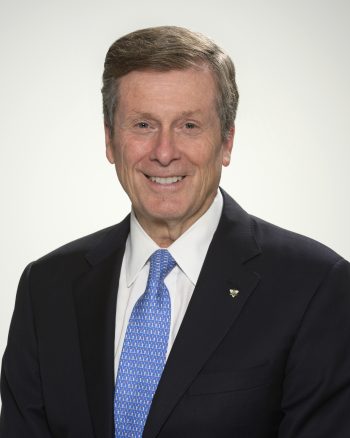

News
Ethics
John Tory’s affair, resignation blow up Toronto mayor’s legacy as dull, stable leader
 Toronto Mayor John Tory.
Toronto Mayor John Tory. By Tyler Griffin
John Tory’s recently disclosed affair with a former staffer and resulting resignation as mayor of Toronto have brought a blowout ending to the straight-laced, button down moderate conservative’s otherwise uneventful tenure in the city’s top job.
Tory honed that reputation over the course of his business and broadcasting careers, as well as two relatively drama-free terms he served at City Hall. The third mandate he easily secured in October’s municipal election seemed to promise more of the same, but those hopes came crashing down on Friday evening.
That night, Tory stunned the city he’d led for more than eight years when he admitted to having an “inappropriate relationship” with a former member of his staff and abruptly announced plans to step down.
Tory originally promised to only run for two terms and could have left public life in the fall respected by people across the political spectrum, said Zachary Taylor, an associate professor at Western University’s political science department. Instead, he decided to run for a third term — a decision Taylor said has now placed his legacy in a very different light.
“He has admitted to doing something that is very much contrary to his image as a squeaky clean, ethically clean mayor who never raises his voice, never does things that are unreasonable,” said Taylor.
“He had this image of being the only grown up in the room while council squabbled around him. Now we’ve seen that image kind of blow up.”
Tory’s whole raison d’etre was stable, calm leadership with no drama following the scandal-plagued mayoralty of his predecessor Rob Ford, said Peter Graefe, an associate professor of political science at McMaster University. In contrast, Tory was “internationally presentable” and gave the sense he was actually managing files at city hall, he said.
But Graefe said the surprising nature of Tory’s departure will likely cast a shadow over his time in office.
“It’s really hard to say, ‘here is the achievements of John Tory over almost a decade in power,”’ said Graefe. “Instead it’s much more someone who’s leaving under a cloud and leaving a lot of unfinished business for the next mayor and Toronto city council to pick up.”
When Tory launched his first mayoral bid in 2014, he ran on a platform of change, a transit vision for the city and low taxes. Graefe said Tory has kept the line on the city budget and taxes, but at the expense of affordability, high housing costs and aging infrastructure.
“There’s a sense of unhappiness that Toronto is not the place to live in that it used to be, that it’s a dirtier city, that it’s a more dangerous city,” he said.
Tory was also “pretty clueless” in his responses to issues of race related to carding and policing of racialized Torontonians, Graefe said.
Criticisms mounted in recent weeks over Tory’s announcement of a proposed $48.3-million increase to the city’s police budget. The boost would bring funding to just over $1.1 billion for 2023, a figure Tory’s critics said was grossly inflated compared to other line items and underfunded social services.
“Given Toronto’s kind of super diversity, we might have expected a leader who could have avoided some unnecessary conflicts on that by showing a greater IQ in terms of the nature of those relationships in Toronto,” Graefe said. “That is another more difficult part of his legacy.”
But regardless of the many negative things people have had to say about Tory, Graefe noted he was elected with little opposition in the past two municipal campaigns.
“He was seen as a good steward of public finances … In certain parts of the city the idea of being tough on the homeless and tough on crime was reassuring.”
“You could see why he was maybe not a popular mayor, but he was a mayor people were willing to continue to vote for, at least in the absence of a serious contender.”
But those policies were the opposite of reassuring for longtime street nurse Cathy Crowe, who said she’s witnessed homelessness double since before the COVID-19 pandemic as well as continued forceful encampment evictions.
“I don’t think in most circles (Tory’s) known exactly as a strong, compassionate heart, if you will,” she said.
Gil Penalosa, who lost the mayoral race in October’s municipal election after only securing 18 per cent of the vote compared to Tory’s more than 60 per cent, announced Saturday he will run again once a byelection is called to replace him.
Penalosa said Tory will be remembered as a hard worker who was committed to reshaping the city’s image, but one that failed on issues of equity, affordability and climate change.
“I don’t evaluate him based on the goals that I have because they’re very different, but I think he tried to do the best he could according to the things that he wanted to do,” said Penalosa.
The progressive urbanist invited Toronto residents not to dwell on Tory’s legacy, or even the past few days, and instead be optimistic and focus on a radically different future.
“He resigned, he did something negative. He’s gone now,” said Penalosa. “Let’s see this as an opportunity and not as a barrier.”
Print this page
